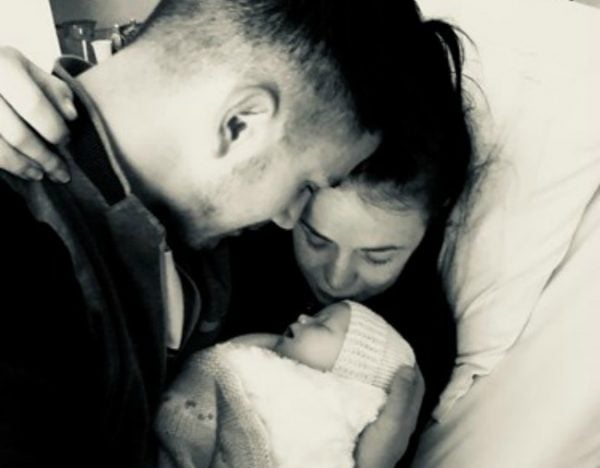Warning: This post includes details and imagery of stillbirth that may be triggering for some readers.
Aimee Green and her partner Ryan Conroy had spent many weeks creating the perfect pink nest and practising their pram-pushing in eager anticipation of their baby girl’s arrival.
Finally, after a textbook nine-month pregnancy, November 2017 swung around and the big day was here.
The young British couple had meticulously researched, discussed and planned out exactly how the birth would unfold: at home, just two of them, in a birthing pool, and supported by a team of midwives. But, tragically, and in a way that no one could ever have foreseen, their daughter Luna didn’t survive.
Green has recounted her experience in a heartbreaking blog in the hope it helps other grieving parents.
She wrote that on the day of the birth, she called their local hospital in Plymouth to let them know she was having a home birth. Midwives were sent over, and the 11-hour labour progressed smoothly.
But in the very final moments of the birth, things went terribly wrong. The umbilical cord had fatally ruptured, and Luna was stillborn.
“I looked up to see the faces of (midwife) Lizzie and Ryan stood side by side, of which this image still makes me feel sick, why isn’t everyone smiling?” she wrote.
“This was not the feeling of euphoria I was expecting, why isn’t she crying, what’s going on?”
Luna was whisked away to the resuscitation table in the kitchen, and Green’s sense of time and space suddenly began to blur.



Top Comments
My son was born with a similar condition - his blood was leaking out through a fault where his umbilical cord attached. We were whipped in for an emergency caesarean as soon as a problem was identified - he was immediately given oxygen and a transfusion and off to NICU, where he remained for a month. He has some brain damage from the temporary lack of oxygen, but despite this, has met all his milestones, is great at sports and does well in school and is a happy kid. I was informed by the doctors at the time that if I was in a regional town, or even had not had the emergency caesarean within the next hour, he would not have survived. We were so lucky. I often wonder what the point of home births and these "amazing" spiritual births are, if they result in risk to you or your baby. My son's birth was quite clinical, but he's alive and well. Birth is just one day out of his whole life. I moved on from the stress of that day pretty quickly, as I accept that it needed to be that way. My other son's birth was planned and easy and joyous. And as I look at my teenagers now, how they came into this world has no impact on who they are, or how I feel about them. I am thankful for hospitals and modern medicine that they are here.
I'm glad that at least the cause of death wasn't related to the home birth, as I imagine it would go some way to help with healing.
Nevertheless, I find it hard to understand why someone would take the riskier option of home birth. We have access to healthcare that women n the past - and women today in certain countries - only dream of, and to not make the most of that when it can literally mean the difference between life and death is hard to understand.
I think the NHS has a system support that can support home births. Having said that, I personally would not choose that option in a million years.